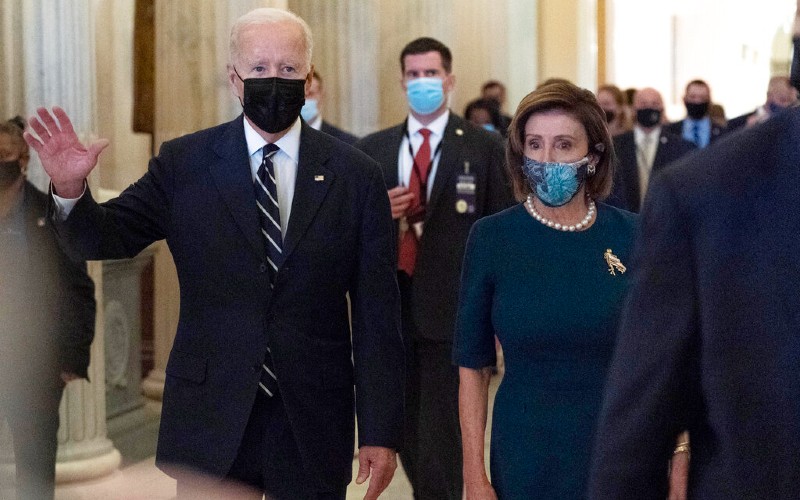Saule Omarova, a law professor at Cornell, announced Tuesday she is withdrawing her nomination to lead the Office of the Comptroller of the Currency. That agency, a bureau of the U.S. Department of the Treasury, charters, regulates, and supervises all national banks, federal savings associations, and federal branches, and agencies of foreign banks.
Any nominee named by Biden is in doubt in the equally divided U.S. Senate but, in the case of Omarova, Republicans who denounced her pro-Marxist views were joined by a few Democrats who could not ignore and defend her blatantly anti-capitalistic record, either.
In the Senate, Omarova's opposition to a 2018 law that rolled back federal regulations on small banks and regional lenders drew the attention of two Democrats, Jon Tester and Mark Warner. Both lawmakers had played a role in that legislation.
And thus her nomination was doomed.
Among a long list of issues, Republicans have pointed to Omarova’s stated wish to “bankrupt” the oil and gas industry, which is a pretty standard view among modern-day Democrats, but it was her jaw-dropping view that private bank accounts should be transferred to the Federal Reserve that made the public pay attention.
According to a Politifact fact-check about that issue, Omarova delivered an academic speech earlier this year in which she said the Federal Reserve should expand its role to be a “central bank” for the people. “She said the purpose for her proposal,” Politifact wrote, “was to change the public-private power balance in finance.”
That fact-checking article, which was published to defend Omarova from exaggerated right-wing accusations, concluded that social media posts were inaccurate because she had never used words such as “demand” and “vowed” in her presentation that did, however, call for taking over private bank accounts.
In a widely-quoted exchange with Omarova, U.S. Senator John Kennedy (R-La.) reminded his colleagues the nominee seated before them had written Marxist-themed academic papers as recently as 2020. Then her delivered the coup de grace: Omorava participated in a public Facebook group in which its members discussed Marxist philosophy.
"I don't know whether to call you 'Professor' or 'Comrade,'" the plain-talking senator concluded.
The nominee stated in front of the Senate hearing that she had "never knowingly joined any such group," even though a conservative group found the academic-themed Facebook group which includes a profile picture of Omarova.
"I am not a communist," Omarova told Sen. Kennedy at the November hearing. "I do not subscribe to that ideology. I could not choose where I was born."
That defense, which indirectly accused Republicans of racism, ultimately became a talking point for the Left. This week, when Omorava announced her withdrawal, far-left news outlets such as NPR said she had faced “personal attacks about being born in the former Soviet Union.”
Kennedy, however, had stated in the hearing that he was not as alarmed by her participation in the Communist Party as a child but that he had a recent record of expounding on those beliefs as a professor and academic who was poised to oversee the U.S. banking industry.

John Berlau of the Competitive Enterprise Institute tells American Family News he was alarmed at Omarova's admiration of the Soviet Union and at her idea for nationalizing bank deposits. And yet President Biden is “unrepentant” about nominating such a person, he says.
"If you look at [Biden’s] statement, he blames personal attacks, not seeing how radically socialist her policy was,” Berlaur says. “So I think they're really going to have to watch his next nominee.”














